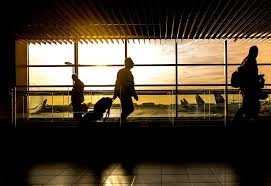US, Venezuela each warn citizens against travel to other country

In a rare and dramatic escalation of diplomatic strain, the United States and Venezuela have issued reciprocal travel warnings, urging their citizens not to visit each other’s countries. The advisories mark a new chapter in the long-standing, often hostile relationship between Washington and Caracas. Both sides cite safety and human rights concerns as core reasons, though underlying political motives and strategic messaging are also clear.
🚨 U.S. Issues Maximum-Level Advisory for Venezuela
On May 27, 2025, the U.S. Department of State updated its travel advisory for Venezuela, assigning it a Level 4: “Do Not Travel” status — the most severe level in its warning system.
This decision reflects what U.S. officials describe as “extreme risks” to American citizens, ranging from wrongful detention and violent crime to terrorism and an inability to access adequate medical care. The advisory also points to the absence of diplomatic representation in Venezuela. Since 2019, the U.S. Embassy in Caracas has ceased operations, making consular support virtually non-existent for Americans in need.
Notably, the State Department revealed that Venezuela currently holds the largest number of wrongfully detained U.S. nationals in the world. Some Americans have been detained at airports, land crossings, or ports without due process. Charges have ranged from espionage to terrorism, often based on what the U.S. calls “fabricated evidence.”
“We cannot ensure your safety,” a State Department official warned during a press briefing. “The Maduro regime uses detentions as political leverage, and Americans are particularly vulnerable.”
🔁 Venezuela Responds with Its Own Travel Alert
A day later, Venezuela’s Foreign Ministry countered with its own advisory, warning Venezuelan nationals against travel to the United States. In a press release delivered by Foreign Minister Yvan Gil, the Venezuelan government accused the U.S. of “rampant xenophobia,” “arbitrary detentions,” and “inhumane immigration practices.”
The advisory mentioned a recent incident in March 2025 where 137 Venezuelan migrants were deported from the U.S. to El Salvador. Human rights organizations reported that many of them were immediately imprisoned in a high-security detention facility, despite having no known criminal records. This incident drew international criticism and strengthened Venezuela’s argument that the U.S. is not a safe destination for its citizens.
Gil described the move as “migration blackmail,” alleging that Washington manipulates immigration enforcement for political gain. “The U.S. is not a safe place for Venezuelans. They face racial profiling, institutional violence, and a legal system stacked against them,” he declared.
💣 A New Phase in an Old Conflict
These tit-for-tat warnings are more than just precautionary advisories; they symbolize the renewed deterioration of U.S.-Venezuela relations. Once major trading partners, the two nations have been locked in a geopolitical and ideological conflict for over two decades.
Under President Hugo Chávez and later Nicolás Maduro, Venezuela has moved closer to authoritarianism, prompting U.S. sanctions, diplomatic isolation, and support for opposition figures like Juan Guaidó. In return, Caracas has accused Washington of economic warfare and orchestrating coup attempts.
While former U.S. administrations oscillated between confrontation and cautious diplomacy, the current atmosphere under President Trump’s renewed tenure is marked by a hardline stance. The updated advisory fits neatly into his foreign policy posture, which favors maximum pressure strategies over traditional diplomacy.
📊 The Real-World Impact on Citizens
Travel advisories have more than symbolic consequences. They affect business ties, family reunifications, humanitarian operations, and even the tourism economy. In Venezuela, U.S.-based NGOs and faith-based organizations have already started reassessing their involvement due to the growing risk.
Meanwhile, Venezuelan families trying to reunite with relatives in the U.S. now face psychological and logistical hurdles. “I wanted to visit my daughter in Miami after five years,” says María González, a Caracas resident. “But now I’m scared I might be treated like a criminal just because of my passport.”
The lack of embassy services also complicates everything from lost passports to legal emergencies. For Americans still residing in Venezuela — many of whom work for international NGOs, oil companies, or are dual citizens — the message is clear: leave while you can.
🧭 What Should Travelers Know?
For Americans:
- Do not travel to Venezuela under any circumstances.
- If already in the country, leave immediately using commercial options.
- Be aware of the lack of consular services due to embassy closures.
- Carry proof of identity at all times, and avoid confrontations with authorities.
For Venezuelans:
- Reconsider travel to the United States due to reported immigration risks.
- Stay informed about immigration policies and avoid illegal border crossings.
- Seek guidance from Venezuelan consulates before booking travel.
🌍 Broader Implications
This diplomatic standoff is part of a wider trend where travel advisories are used not just for public safety, but as tools of foreign policy. In today’s globalized world, where people, goods, and ideas move quickly across borders, the ability to restrict mobility has become a powerful instrument of geopolitical pressure.
The U.S.-Venezuela case demonstrates how fragile international trust has become. While the advisories aim to protect citizens, they also deepen isolation, reduce people-to-people engagement, and entrench political divides.
With no diplomatic resolution in sight, the current warnings may remain in effect for months or even years. What’s at stake is more than just travel rights — it’s the future of U.S.-Venezuela relations and the safety of citizens caught in the middle.






